Hong Kong Police Fire Tear Gas, Rubber Bullets At Protesters In "Riot Situation"
For decades, China has been terrified - and preparing - for a social uprising on the mainland. It was less prepared for one taking place in Hong Kong.
Two day after a massive, 1+ million protest took place in Hong Kong, with demonstrators demanding the end to a proposal allowing extraditions to China, a follow up protest took place with thousands of people blocking local streets, and Hong Kong police defended the use of tear gas and rubber bullets to control a “riot situation” after protesters tried to storm the chamber where lawmakers were expected to take up - and pass - the controversial bill.
As we noted last night, a repeat protest erupted early on Wednesday, and it only got worse as the day progressed as demonstrators - many of them clad in goggles, face masks and helmets -fled to different areas, running through plumes of smoke - threw bricks, bottles and umbrellas at riot police guarding the city’s Legislative Council; they dragged metal barriers and linked arms across roads surrounding government headquarters, in scenes reminiscent of the 79-day street protests that paralyzed parts of downtown Hong Kong in 2014.
The police responded with tear gas, pepper spray and batons. Farther back from the barricades, protesters rapidly ferried umbrellas, gloves, bottles of water and sodium chloride to treat injuries from pepper spray through the crowd to the front.
Hong Kong’s commissioner of police described Wednesday’s demonstrations as “riots” and called on protesters to go home, warning that those who refused “might regret your decision for your entire life.” The remarks by Commissioner Stephen Lo at a news conference came moments after protesters stormed police barricades outside the Legislative Council, leading to the use of tear gas, beanbag rounds and rubber bullets.
“If they are peaceful protesters, please leave,” Mr. Lo said. “If they are violent protesters, then please think twice because you might regret your decision for the entire life.”
At one point there was even speculation that the Chinese army was deployed to Hong Kong.
Police said in a press briefing that some protesters had hurled weapons such as metal barriers and bricks at officers, leaving them with no choice but to contain the crowds with rubber bullets, tear gas, batons, pepper spray and beanbag guns.
Five years ago, the use of tear gas by the police in an attempt to push back against a student democracy protest incited public fury that brought tens of thousands of people onto the streets. That turned into a sustained occupation of several commercial districts for several months in Hong Kong known as the Umbrella Movement, referring to the shield of choice used to fend off police pepper spray.
Due to the violent protests, the Legislative Council delayed debate on the proposal after thousands of demonstrators swarmed the government complex in central Hong Kong, eventually prompting scuffles with police at the chamber doors. The protesters called for Chief Executive Carrie Lam to withdraw the bill, which they argue would blow up the legal wall intended to keep the former British colony’s justice system separate from China’s.
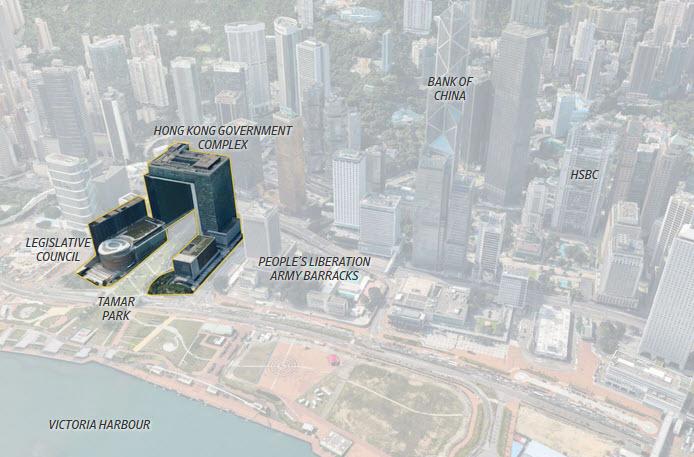
Lo said his officers had peacefully surrounded the legislature complex but would not permit demonstrators from crossing over the barricade, adding that it was the demonstrators who were the first to use force.
“In terms of using violence, we have guidelines that we are following,” he said, adding that “I think we should all remember who initially started the protest.”
* * *
Trouble erupted midafternoon Wednesday, when hundreds of protesters attempted to push barricades north toward the city’s harbor, then retreated under a bridge after police deployed tear gas against them. All access roads leading to the central government offices, which house the legislature, were blocked, the government said in a statement.
By late Wednesday afternoon, tear gas hung in the air in the city’s main financial and business district. A few office workers looked on as men with masks charged toward the Legislative Council, and the crowd cheered out support and warnings.
So much tear gas was used that commuters waiting at nearby subway stations and people in shopping malls were coughing and tearing up, and many sought medical attention.
Many of the city’s lawmakers, from both the pro-democracy camp that opposes the contentious extradition legislation at the heart of the protests and the pro-Beijing majority that supports it, failed to arrive at the council for a scheduled debate on Wednesday morning, after protesters surrounded the complex and blocked traffic.
Some financial services were also disrupted. HSBC Holdings PLC closed two banking-service outlets in the Admiralty area until further notice, while other banks including Standard Chartered PLC, Bank of East Asia Ltd. and China Citic Bank Corp. temporarily suspended operations at branches near the protest area.
Even though the opposition bloc in the city’s legislature has been weakened after authorities ousted several democratically elected lawmakers through court orders and barred others from running, opposition to the proposed law came from many corners of society, including businesspeople, lawyers and activists, who say the changes would undermine Hong Kong’s relative autonomy and independent judicial system, the US also chimed in: the State Department on Monday said the bill, if passed, could “subject American citizens residing in or visiting Hong Kong to China’s capricious judicial system
According to the WSJ, most of those taking part said they did so spontaneously, filling roles where assistance was needed during the day. Some protesters mounted tram stops nearby, relaying messages and requests for equipment across the heads of the crowd. Keith Liu, a student running a station distributing supplies, said that he didn’t believe the protests could prevent the bill from passing, but that he felt compelled to register his dissent.
“We still have to come out here. We have to fight for ourselves,” he said.
“The government needs to acknowledge that my voice matters,” said Candy Wong, a 27-year-old shop assistant who said she was angered after authorities pressed ahead with the bill even after more than a million people—including herself—took to the streets in protest. Ms. Wong took a day off to join the rally. “If I didn’t come today by next week I may no longer have the freedom to do so.”
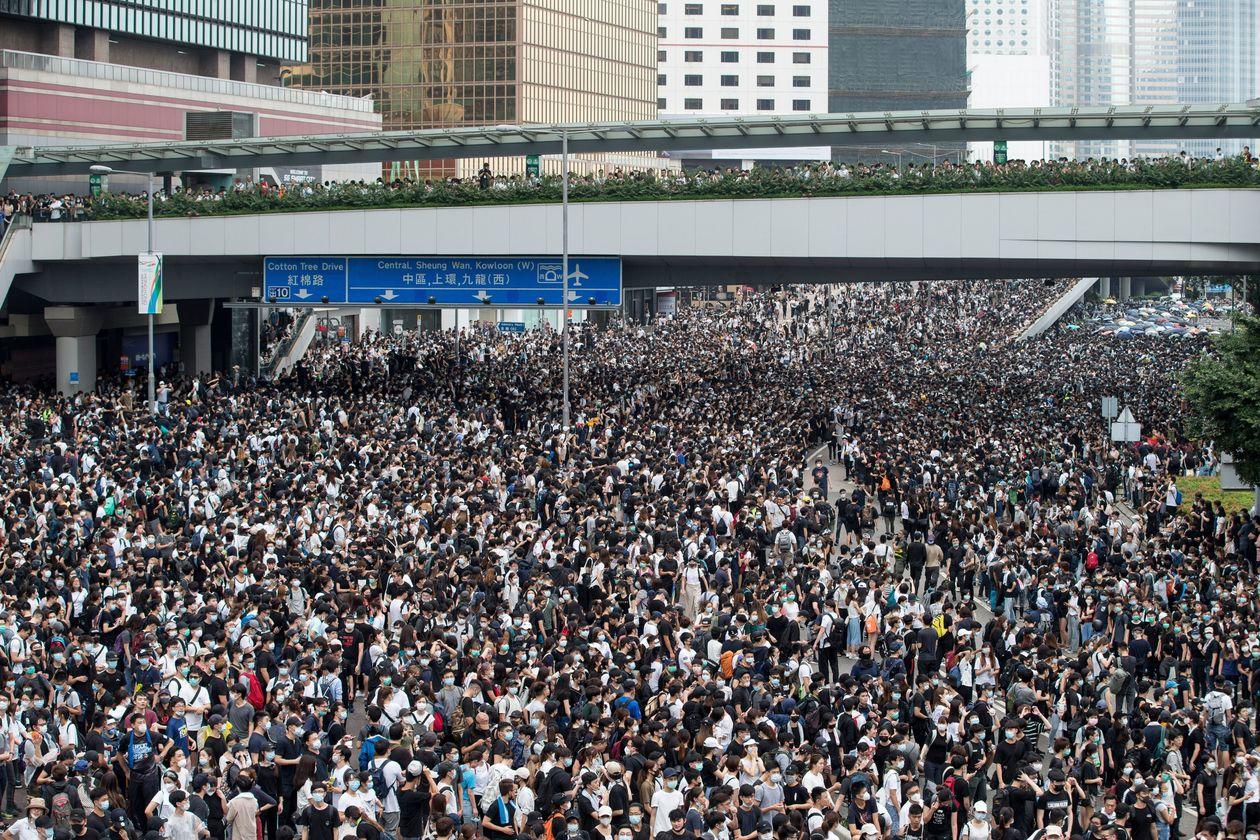

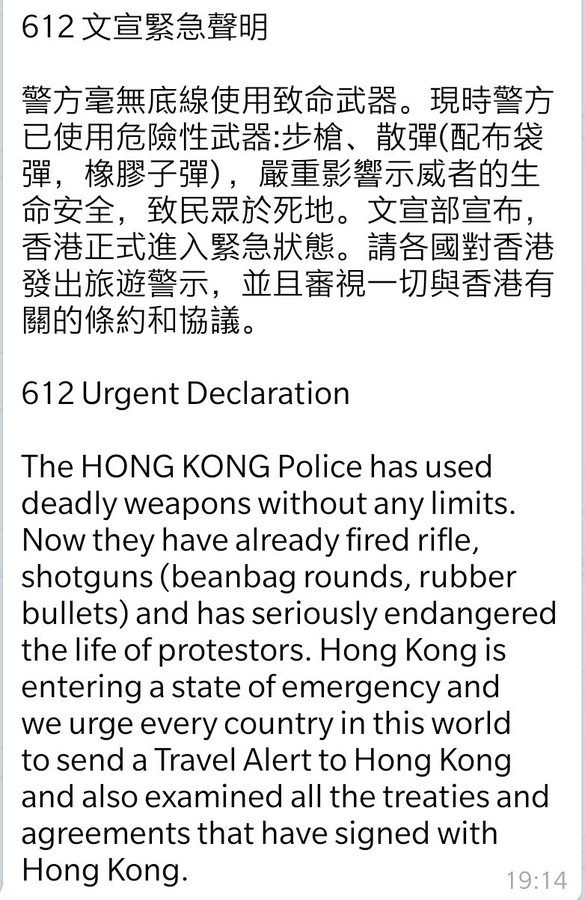
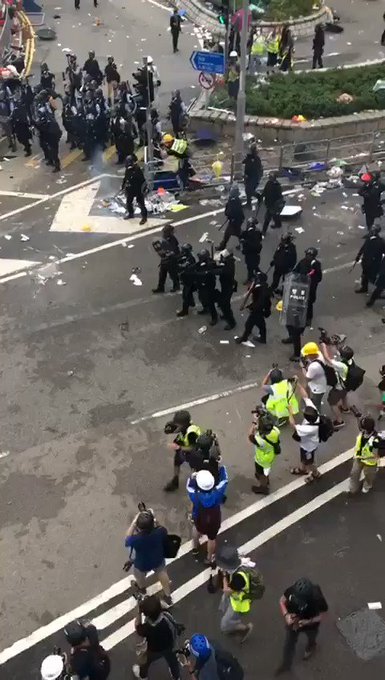
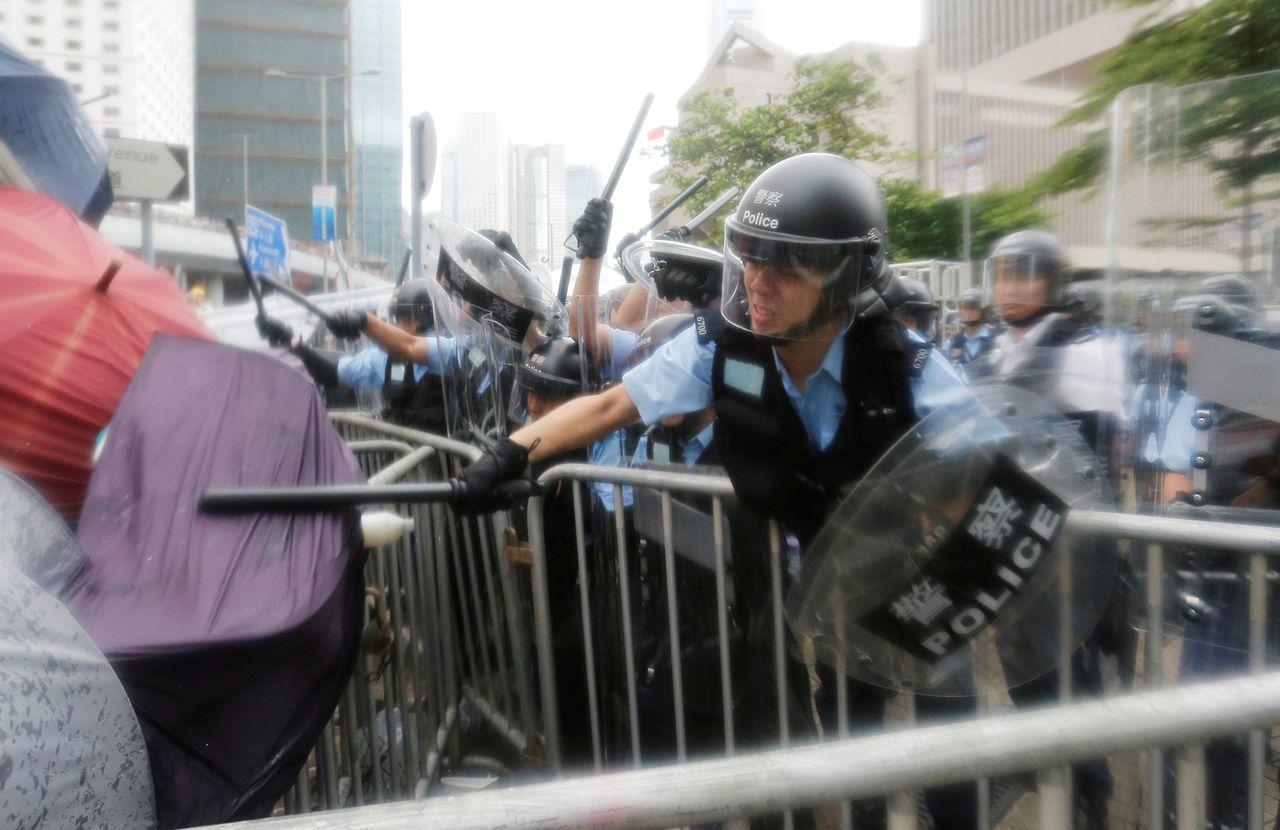
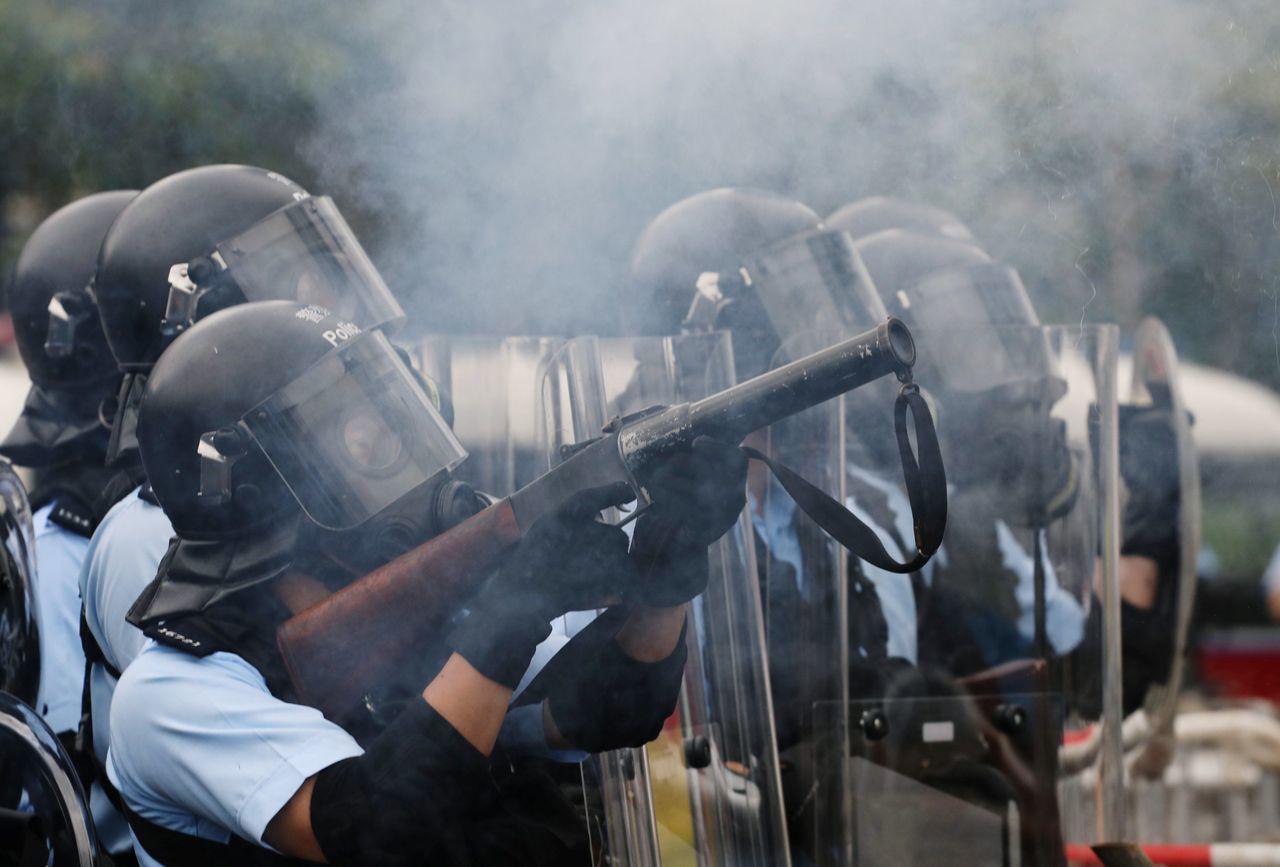
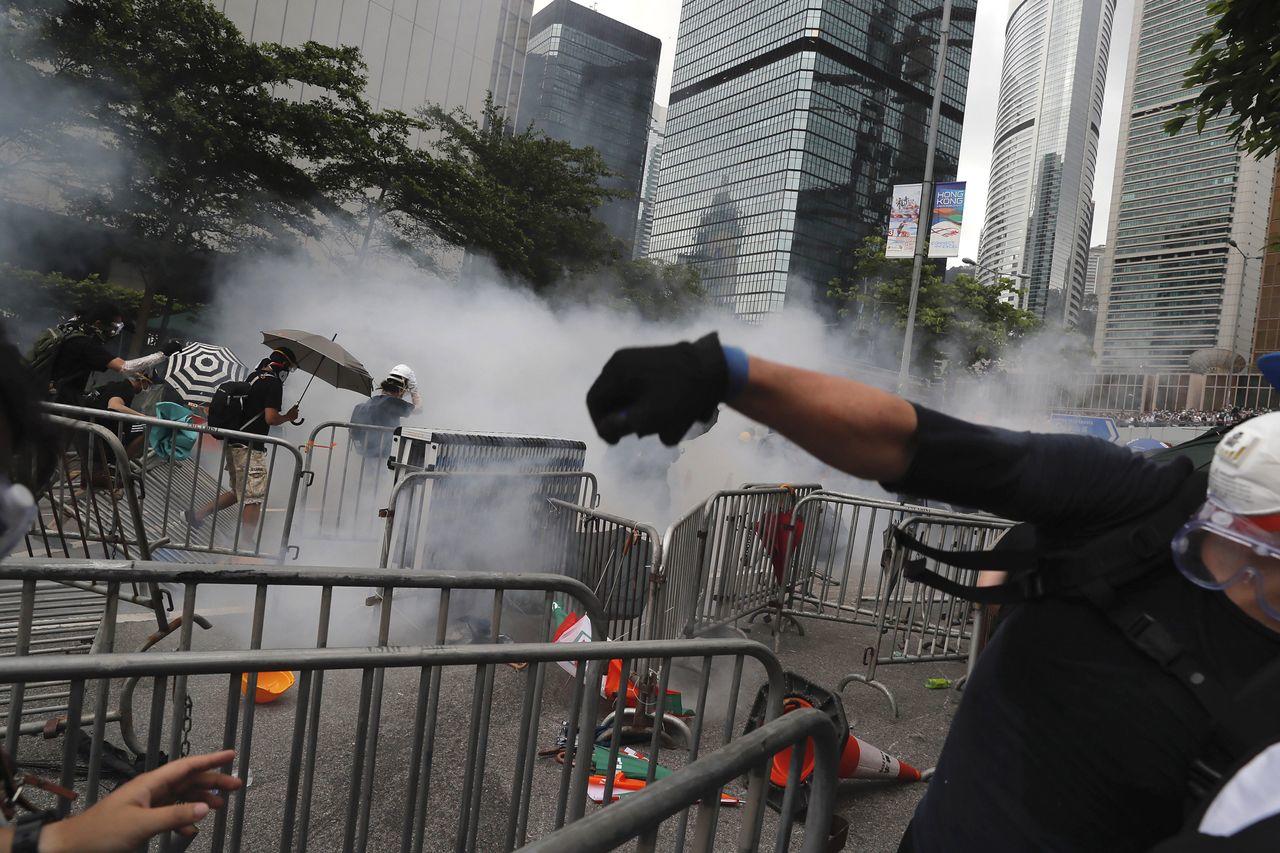


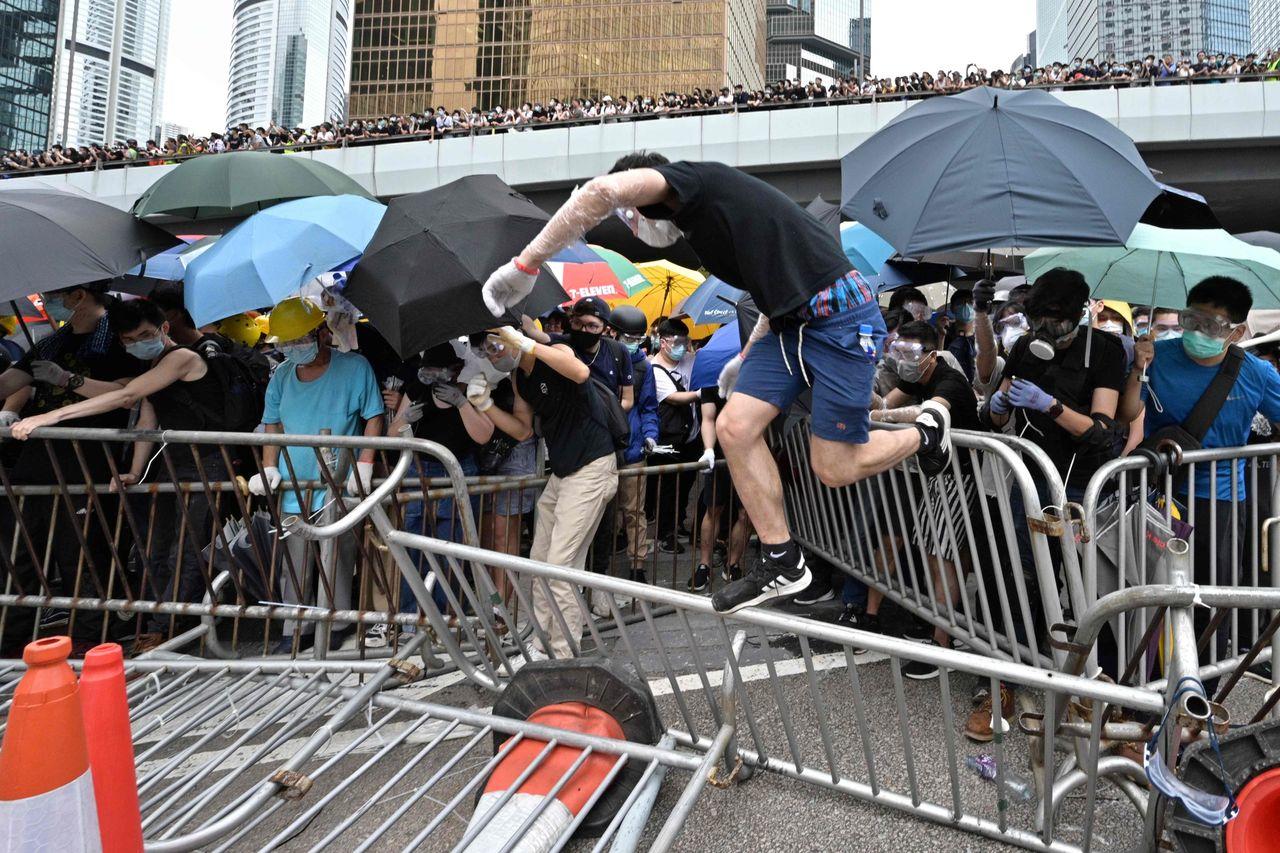
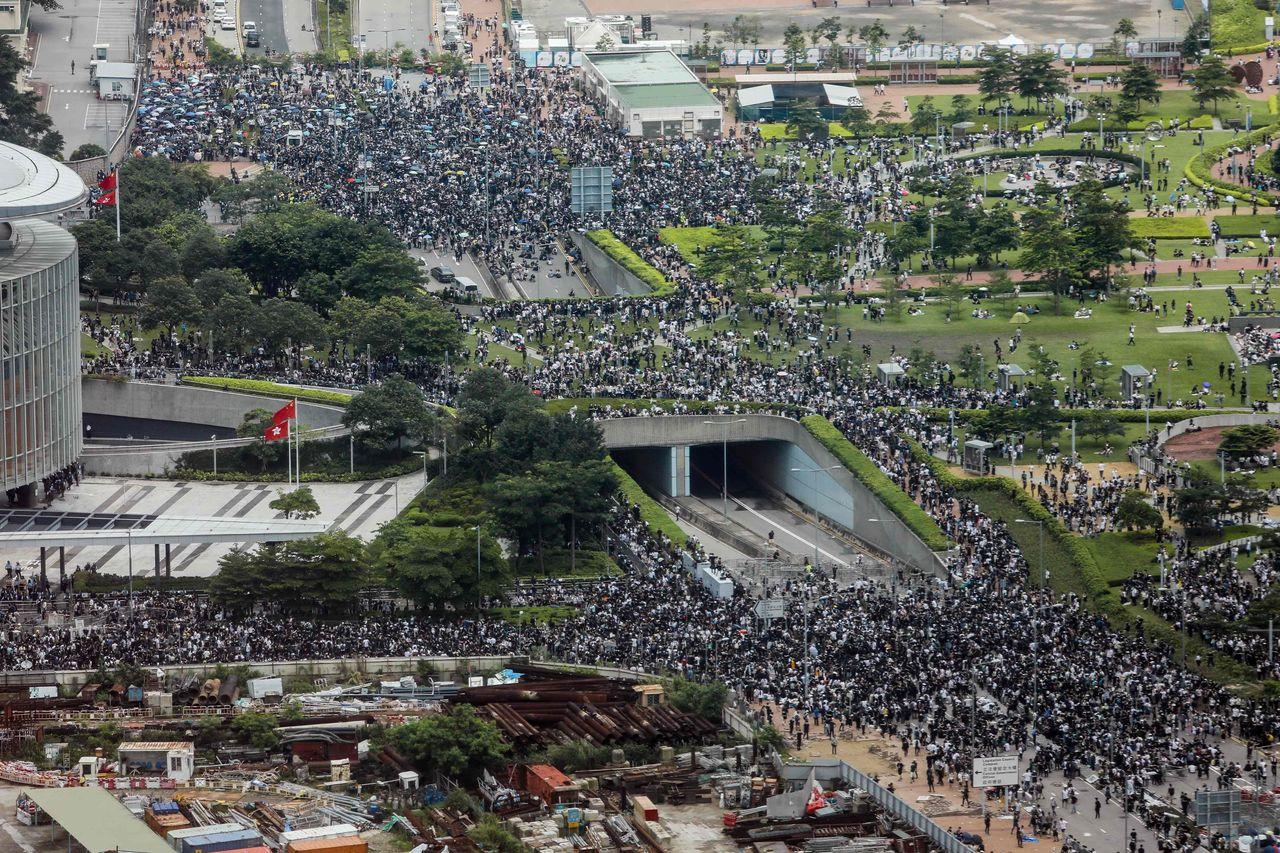
No comments:
Post a Comment